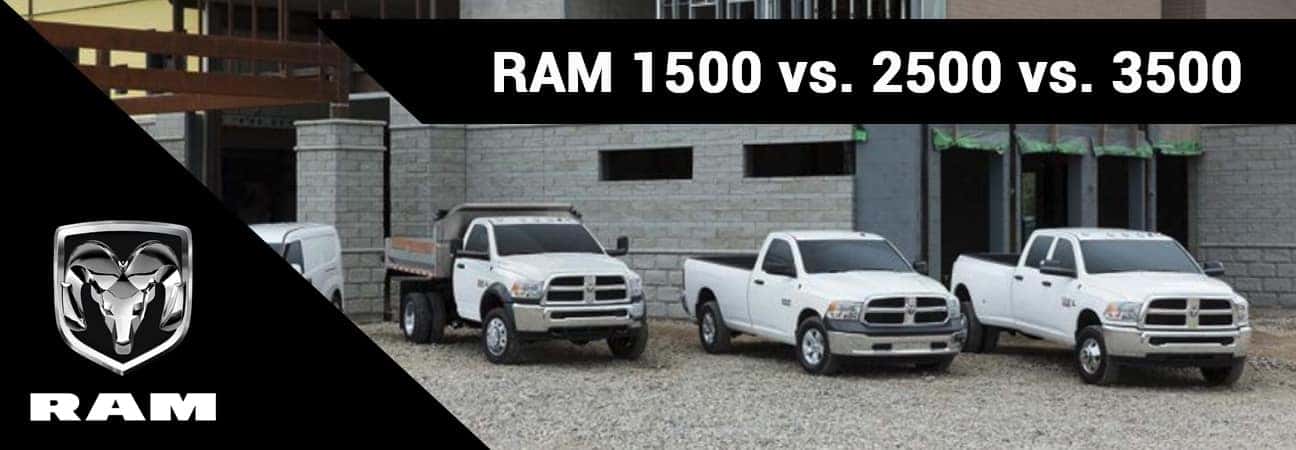The main difference between the silverado 1500 and 2500 is their towing capacity. The silverado 2500 can tow significantly more weight than the silverado 1500 due to its heavier frame, suspension, and larger engine options.
If you need to tow heavy loads frequently, the 2500 may be the better option for you. However, if you don’t plan on doing heavy towing and prefer a more affordable and fuel-efficient option, the 1500 might be the way to go.
Both models offer a range of features and trim levels, so it’s important to carefully consider your needs and budget when choosing between them. Many drivers find the silverado 1500 to be a more practical and versatile option for everyday use, while the silverado 2500 is usually reserved for more heavy-duty and specialized tasks. Overall, both are powerful and reliable trucks that can get the job done, but the decision ultimately depends on what you need from your vehicle.

Credit: www.schumacherchryslerdodgejeepramofdelraybeach.com
Cost-Effectiveness
The cost-effectiveness of buying a silverado 1500 or 2500 depends on various factors. Comparing the purchase costs reveals that the 1500 is cheaper than the 2500, making it a more affordable option. However, the difference in ongoing maintenance costs between the two models should also be considered.
The silverado 2500 comes with additional features that justify its higher cost. These features can enhance convenience, performance, and overall driving experience. Nevertheless, it is essential to weigh the cost-benefit analysis of purchasing either model. Investing in a more expensive vehicle may be a wise decision in the long run, considering long-term maintenance costs.
Determining the cost-effectiveness of purchasing either model of the silverado requires careful evaluation of your needs and priorities.
Towing And Payload Capacity
Payload and towing capacity are vital when choosing a truck. Silverado 1500 has a maximum payload of 2,280 pounds and can tow up to 13,300 pounds. On the other hand, silverado 2500 has a payload capacity of 3,979 pounds and can tow up to 18,500 pounds.
Of course, the upgraded power and towing capacity come at a cost. The silverado 2500 can be a more expensive investment, but it provides the necessary power for heavy-duty use. Ultimately, the choice between silverado 1500 and 2500 depends on your towing and payload needs.
Make the right decision to receive the best performance for your business or personal needs.
Fuel Efficiency
When discussing the fuel economy of silverado 1500 and 2500, it’s important to consider the factors that impact fuel efficiency in trucks. This includes the weight and size of the vehicle, the engine type, and the driving conditions. While the silverado 1500 typically offers better fuel efficiency than the 2500, it may not be significant enough to justify the investment for some buyers.
Ultimately, choosing between the two models will depend on the individual’s needs and priorities. By understanding the factors that impact fuel efficiency, potential buyers can make an informed decision and choose a silverado model that meets their needs while optimizing fuel economy.
Off-Road Capability
Off-roading requires certain fundamental features in a truck, such as high ground clearance, sturdy suspension, and strong tires. On comparing the off-road capability of the two chevy trucks- silverado 1500 and 2500, they both seem to be well-equipped to tackle off-road challenges.
However, silverado 2500 has an edge over 1500 in terms of payload capacity, frame strength, and towing capacity. If these factors matter to you, then investing in silverado 2500 can prove to be a valuable choice. But, if you don’t require a truck with such high capabilities, silverado 1500 is ideal.
In short, it all depends on your personal preference and off-road requirements.
Frequently Asked Questions On Silverado 1500 Vs 2500
What’S The Difference Between Silverado 1500 And 2500?
Silverado 1500 is a light-duty pickup truck while silverado 2500 is a heavy-duty one. The difference between both is mainly their size, powertrain, towing capacity, payload capacity, and price.
Which One Is Better For Heavy-Duty Work, 1500 Or 2500?
For heavy-duty work, silverado 2500 is a better fit than 1500. It has a more robust powertrain, which allows it to haul and tow heavier loads. It also has stronger axles, additional support springs, and a more substantial braking system.
What Is The Fuel Economy Of 1500 And 2500?
The fuel economy of silverado 1500 and 2500 depends on trim level, engine size, and drivetrain. On average, silverado 1500 gets around 17 mpg in the city and 23 mpg on the highway. On the other hand, silverado 2500 gets around 14 to 16 mpg in the city and 18 to 20 mpg on the highway.
Can 1500 And 2500 Tow The Same Amount?
No, silverado 1500 and 2500 can’t tow the same amount. Silverado 1500’s maximum towing capacity is around 13,300 pounds while silverado 2500 can tow up to 18,500 pounds. This is mainly due to the difference in their engine size and powertrain.
Is Silverado 2500 Worth The Extra Money?
It depends on your needs. If you need to haul and tow heavy loads frequently, silverado 2500 is worth the extra money. However, if you only need a pickup truck for light-duty work, silverado 1500 is a better fit. Silverado 1500 is also less expensive than silverado 2500.
Conclusion
After closely examining the differences between the silverado 1500 and 2500, it is clear that both vehicles offer distinct advantages for different purposes. The silverado 1500 is a great option for those who prioritize fuel efficiency, affordability, and daily driving experience.
On the other hand, the silverado 2500 is perfect for hauling and towing heavy loads, making it ideal for contractors and those who regularly transport cargo. Although both vehicles share similarities, the differences in performance, towing capacity, and engine power warrant a closer look before making a purchase decision.
In the end, it all comes down to individual needs and preferences. By keeping these factors in mind and comparing the pros and cons of each vehicle, you can make an informed decision and select the one that best fits your requirements.

